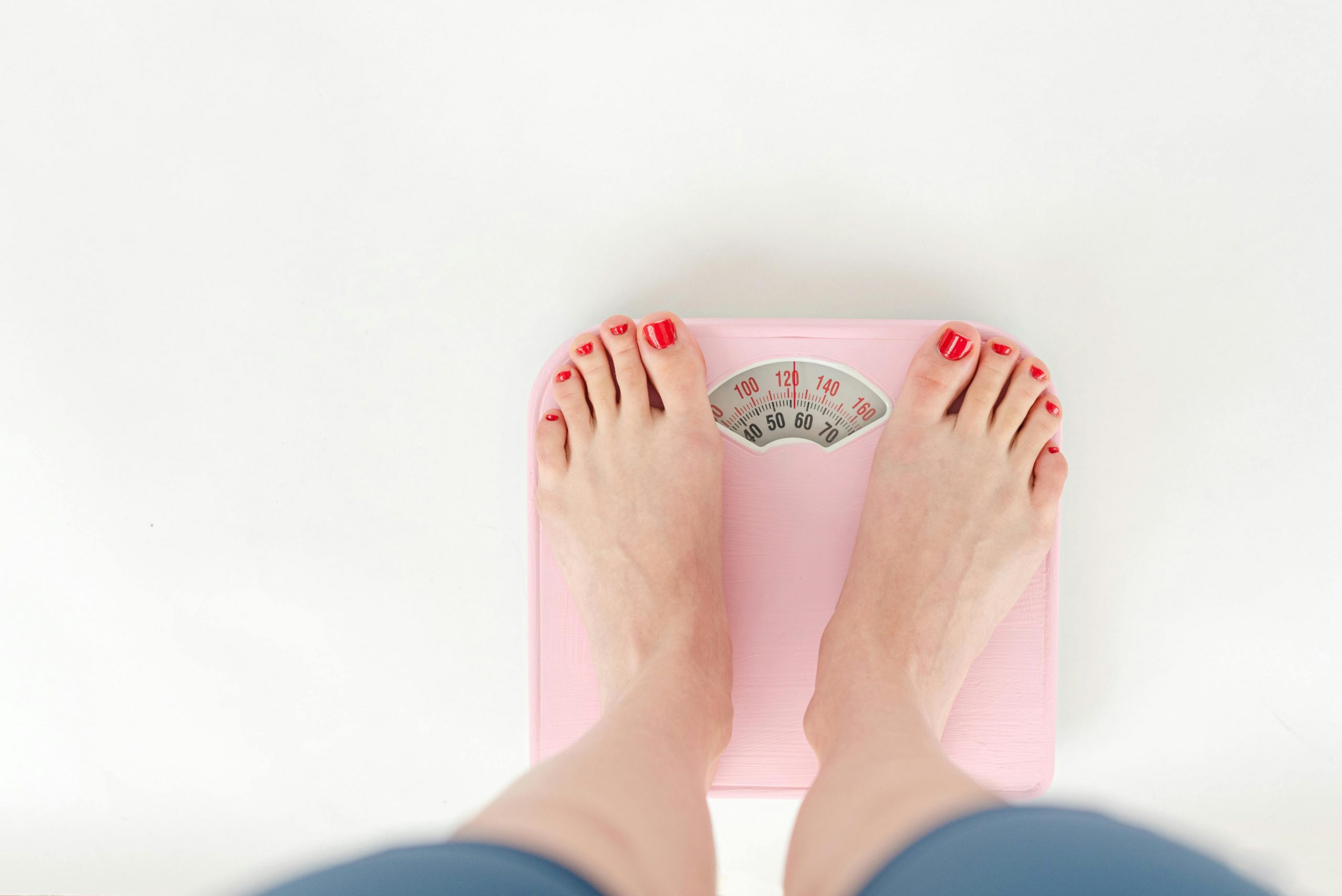
If you’ve ever stepped up your fitness routine only to see the number on the scale creep up, you’re not alone. It’s one of the most frustrating and confusing things, especially for women who are putting in the effort at the gym, following healthy eating habits, and doing everything “right.”
So what gives?
The truth is, weight gain while working out doesn’t always mean you’re doing something wrong. In fact, there are several medical and physiological reasons behind it—some of which are surprising. In this post, we’ll dive into those lesser-known explanations for why you’re gaining weight while working out, especially as a woman.
Why Am I Gaining Weight While Working Out? It Could Be Muscle Gain.
Before jumping into the medical stuff, let’s get one common and positive reason out of the way.
Muscle is denser than fat. So while you might be losing fat, your muscle mass could be increasing—and that weighs more by volume. This can lead to a slight increase on the scale, even though your body may be getting leaner.
But what if the weight gain is more than just a few pounds and comes with bloating, fatigue, or mood swings? That’s when you might want to consider these medical explanations.
1. Your Hormones Are Out of Sync

Hormonal imbalances can interfere with everything from energy to appetite control. Here are a few common culprits:
- Cortisol: Also known as the stress hormone, cortisol can spike due to overtraining, lack of sleep, or emotional stress. High cortisol levels encourage fat storage, especially around the belly.
- Estrogen dominance: Many women experience an imbalance between estrogen and progesterone. Too much estrogen can make your body hold onto fat and water.
- Thyroid dysfunction: An underactive thyroid (hypothyroidism) slows down your metabolism, which can lead to weight gain even with regular exercise.
Tip: If you’re feeling sluggish, unusually cold, or are experiencing irregular periods, it might be worth asking your doctor to check your hormone levels.
2. Water Retention from Inflammation
When you work out, especially if you’re doing strength training or high-intensity interval training (HIIT), you’re creating micro-tears in your muscles. This is how muscle grows—but in the short term, it triggers inflammation.
Inflammation causes your body to retain water as part of the healing process.
Signs This Might Be the Case:
- You feel puffy or bloated
- Your clothes feel tighter without a noticeable change in appearance
- You notice swelling in your hands, feet, or face
This type of weight gain is temporary and will typically resolve as your body adapts to your workouts.
3. You Have PCOS and Don’t Know It
Polycystic Ovary Syndrome (PCOS) is a hormonal disorder that affects an estimated 6% to 13% of women of reproductive age worldwide. Surprisingly, many women living with it remain undiagnosed. One of its primary symptoms? Unexplained weight gain, especially around the midsection.
Why PCOS Can Stall Your Weight Loss Efforts:
- It disrupts insulin sensitivity, leading to increased fat storage
- It causes hormonal imbalances that affect appetite and metabolism
- It can result in fatigue and mood changes, making it harder to stay active
If your period is irregular, you have excess facial hair, or you’re dealing with persistent acne, talk to a healthcare provider. Getting a diagnosis can help tailor your workout and dietary approach.
4. You’re Not Sleeping Enough
Sleep isn’t just for rest—it’s crucial for recovery, hormonal balance, and yes, weight regulation.
When you don’t get enough sleep:
- Cortisol levels rise, which we’ve already mentioned leads to fat storage
- Leptin (the satiety hormone) drops and ghrelin (the hunger hormone) increases, making you feel hungrier throughout the day
- Your body doesn’t recover properly, which can hinder progress and lead to more inflammation
Even if you’re killing it at the gym, cutting sleep short can undo your hard work.
5. Your Birth Control Might Be Playing a Role
Some hormonal contraceptives are known to cause weight gain. While this isn’t true for every woman, if you’ve recently changed your birth control and started gaining weight around the same time, it’s worth considering.
How it can affect your weight:
- Increases water retention
- Alters your body’s insulin response
- May stimulate appetite in some women
Talk to your healthcare provider if you suspect your contraception is affecting your progress.
6. You May Have Gut Health Issues
An imbalance in gut bacteria (also known as dysbiosis) can contribute to bloating, food sensitivities, inflammation, and yes, stubborn weight gain.
Symptoms of Gut Imbalance Include:
- Gas and bloating
- Irregular bowel movements
- Constant fatigue or brain fog
If your workouts are making you feel worse instead of better, and you’re experiencing digestive issues, your gut health might be a factor.
Try incorporating probiotic-rich foods like yogurt, sauerkraut, or kefir, and avoid over-reliance on processed “diet” foods that may disrupt your microbiome.
7. You’re Overexercising Without Realizing It

Believe it or not, too much exercise can actually lead to weight gain. It places stress on your body, increases inflammation, and spikes cortisol levels—creating a storm that encourages fat retention.
Signs You’re Overtraining:
- Constant fatigue
- Poor sleep quality
- Decreased performance
- More frequent illness
More isn’t always better. Rest days are critical to long-term progress and hormonal balance.
8. You Have Hidden Food Sensitivities
Even healthy foods can cause issues if your body doesn’t tolerate them well. Common culprits include:
- Dairy
- Gluten
- Soy
- Eggs
Food sensitivities may not cause full allergic reactions, but they can lead to low-grade inflammation, water retention, and digestive problems, all of which can reflect as weight gain on the scale.
An elimination diet or working with a nutritionist may help you identify problem foods.
9. You’re in Perimenopause or Menopause
Hormonal shifts during perimenopause and menopause can significantly change how your body stores fat. Estrogen levels drop, which may result in more fat being stored around your belly.
Additional Challenges:
- Slower metabolism
- Poorer sleep quality
- Hot flashes and mood swings affecting workout consistency
Adjusting your fitness routine and focusing more on strength training and stress reduction can help.
10. You’re Relying Too Much on the Scale
Last but not least: The scale isn’t the full story.
It doesn’t differentiate between fat, muscle, water, or inflammation. And as a woman, your weight naturally fluctuates throughout your menstrual cycle due to hormonal changes.
Consider tracking instead:
- Body measurements
- Progress photos
- Energy levels
- Clothing fit
- Strength and stamina improvements
What Should You Do Next?
If your weight is increasing despite regular workouts and healthy eating, don’t panic. It’s a common experience for many women and doesn’t necessarily mean you’re going backwards. Instead, take a more informed and holistic approach:
Track your symptoms daily or weekly
Keep a log of how you feel physically (energy, soreness, hunger), emotionally (mood swings, irritability), and mentally (clarity, motivation). These clues often reveal patterns tied to hormones or stress levels.
Schedule bloodwork and talk to your doctor
Ask for a comprehensive panel that checks your thyroid (TSH, T3, T4), reproductive hormones (estrogen, progesterone, LH, FSH), cortisol levels, vitamin D, iron, and insulin sensitivity. This information can uncover hidden conditions like PCOS, hypothyroidism, or nutrient deficiencies.
Reassess your workout strategy
Balance your fitness routine with a mix of strength training, moderate cardio, and active rest. Intense daily workouts without adequate recovery can spike cortisol and stall results. Prioritize quality over quantity.
Take a closer look at your nutrition
Eating “healthy” isn’t one-size-fits-all. Focus on anti-inflammatory, whole foods that stabilize blood sugar. Don’t forget to fuel adequately—under-eating can also lead to weight gain by slowing your metabolism.
Improve your sleep and stress management
Aim for 7–9 hours of sleep per night and find ways to wind down daily. Yoga, stretching, meditation, or simply walking outdoors can reset your nervous system and support hormonal balance.
Work with professionals
A functional medicine doctor, registered dietitian, or certified trainer familiar with women’s health can tailor a plan specific to your needs.
Be patient and kind to yourself
Progress isn’t always linear. Focus on how you feel, how your clothes fit, and the strength you’re building—not just the number on the scale.
A Different Way to Measure Progress
If you’re tired of obsessing over the scale, it might be time to shift your focus to more meaningful markers of progress. Weight is just one piece of the puzzle—and often not the most useful one.
Try tracking:
- How your clothes fit: A looser waistband or a more comfortable fit in your jeans can speak volumes.
- Energy and mood: Are you feeling more focused, energetic, or emotionally balanced? That matters.
- Workout performance: Are you lifting heavier, running longer, or recovering faster? That’s real progress.
- Sleep quality: Better sleep is a sign your body is responding well to your routine.
- Confidence and body image: Do you feel stronger and more comfortable in your skin? That’s worth celebrating.
By expanding how you define success, you’ll be more motivated to keep going—and more likely to maintain a healthy lifestyle over the long term.
In Summary
Gaining weight while working out can feel disheartening, especially when you’re doing your best to live a healthier life. But sometimes, the reason has less to do with your effort and more to do with what’s happening inside your body.
Understanding these lesser-known medical reasons can empower you to make smarter choices, ask better questions, and approach fitness with patience and confidence. Remember, your journey is unique, and so is your body.
If something doesn’t feel right, don’t brush it off. Trust your instincts, seek expert guidance, and keep showing up for yourself—because that’s the part that truly counts.



